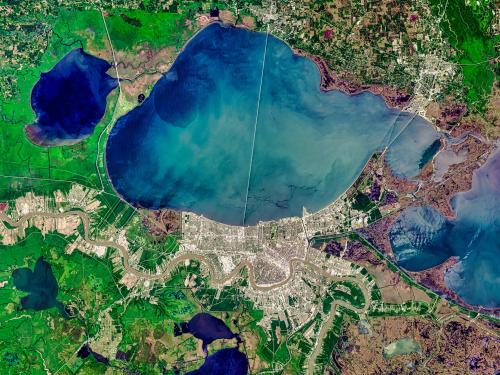Last month, New York City’s Mayor Bill de Blasio announced that all of the city’s public schools will be required to teach a computer science curriculum within 10 years. The city joins Chicago and San Francisco in requiring public schools to teach the subject.
These efforts to teach information technology are coming at an important time: Relative to a bachelor’s degree, the value of a high school diploma has plummeted in recent decades. Mean earnings for high school diploma-only holders were 24 percent less than bachelor’s degree-only holders in 1980; now the gap is 56 percent. Given what we know about the economic value of computer science and other science, technology, engineering, and math (STEM) skills, offering these skills in high school would help close the gap.
According to the Census Bureau, people with a bachelor’s degree in a computer or math subject who work in a related field are likely to earn around a million dollars more than the average worker over their lifetime. Computer and math workers also enjoy a 2.8 percent unemployment rate, nearly half the rate for all workers. Women in these fields experience even lower levels of unemployment—2.1 percent. Last year, we released research showing that job vacancies advertising computer skills are high paying and harder for employers to fill. We also know from research this year that computer science matters at the college level, too, and that colleges that prioritize STEM skills graduate students with the highest earnings.
Critics of mandating computer science education might wonder if teaching programming to grade-schoolers is too esoteric or even necessary given that most jobs don’t require writing code. Many jobs today don’t explicitly require algebra or knowledge of history either, but it’s generally agreed upon that high school students should know something about these fields because of their intrinsic importance. Likewise, at least some knowledge of how computers and software function is becoming an essential aspect of cultural fluency, with enormous practical benefits that increase every year, as paperless offices and smartphone apps proliferate.
Mayor de Blasio’s computer science curriculum isn’t an education panacea, and it’s important to note that, to date, the mayor’s education record has been decidedly mixed. On the one hand, he has admirably expanded access to public pre-kindergarten education, but his administration has been indifferent to the quality of public education. In fact, he has actively undermined charter schools, limiting escape options for students assigned to one of the city’s many failing schools. While the effort to push forward a computer science curriculum doesn’t excuse those other shortcomings, it’s an idea with real merit.
The Brookings Institution is committed to quality, independence, and impact.
We are supported by a diverse array of funders. In line with our values and policies, each Brookings publication represents the sole views of its author(s).



Commentary
New York City’s proposed computer science curriculum is smart for students, smart for the city
October 8, 2015